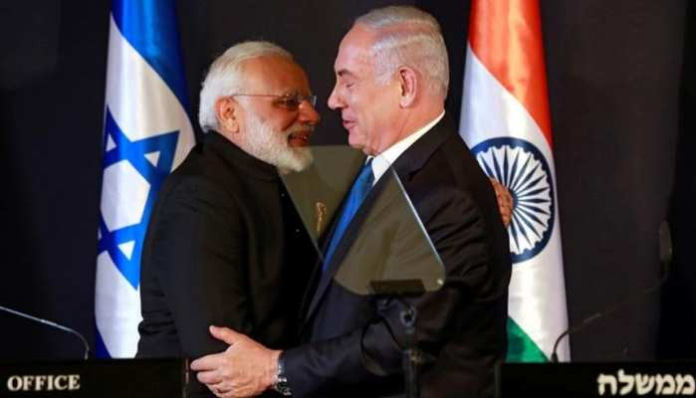DNA
Unable to stomach a blow to its Hindutva pride after failing to intercept a random terror attack, Narendra Modi’s government launched a surprise assault on Pakistan in the dead of night on May 6, 2025 — firing 24 missiles at nine cities and killing nearly 31 innocent Pakistanis, including children, and injuring scores others.
The charge was support for cross-border terrorism — a claim far from proven to date.
One could not help but draw parallels to October 7, 2023, when Israel attacked Gaza using an attack by Hamas as an excuse. What followed has been vicious bombings, starvation, and endless war crimes — all aimed at annihilating an entire population.
Though Pakistan, with a feared and battle-tested army defending it, is no Gaza, the parallels in India and Israel’s approach are hard to miss.
Most of the world’s blatant apathy towards Israel’s slaughter of innocent Palestinians in Gaza seems to have emboldened India to follow suit.
Here we look at some of those similarities and cannot help but wonder if this is the future of conflict in the world.
Weaponising water
In the immediate wake of the October 7 attack, Israel’s Defence Minister, Yoav Gallant, declared that Gaza was under siege and stated that “there will be no electricity, no food, no water, no fuel, everything will be closed.”
After a massacre of 26 tourists in Pahalgam on October 25, 2025, by gunmen, the first thing India did was suspend the 65-year-old Indus Water Treaty (IWT) with Pakistan.
They abruptly stopped releasing water from the Baglihar Dam on the Chenab River, cutting off vital downstream flow. Then, the Modi sarkar said it had decided to block the Jhelum River using the Kishanganga Dam, which could slowly starve it of water.
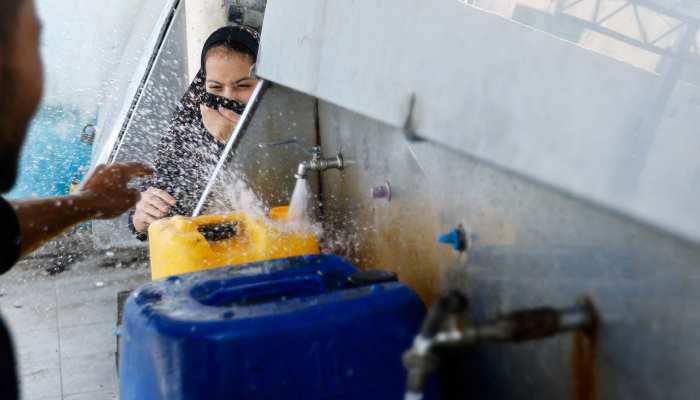
Two weeks after the suspension of the Indus Water Treaty, Narendra Modi gave a statement that “India’s water will now be preserved, utilised, and directed towards the nation’s progress and benefit.”
India weaponised water, blocking flows to Pakistan, mirroring Israel as they cut off food and water to Palestinians post-Hamas attack.
Accuse first, investigate never
Days after the Hamas attack, Prime Minister Benjamin Netanyahu’s government claimed —without evidence — that Hamas had beheaded 40 babies, a story that was later proven false. Israel refused any independent inquiry into the October 7 incident and has since used it as justification to destroy Gaza and kill Palestinians freely.
Similarly, the tragic April 22 terrorist attack in Indian Illegally Occupied Jammu and Kashmir (IIOJK) appears to be a failure of India’s intelligence and security. Yet India followed its usual pattern — blaming Pakistan without offering any proof.
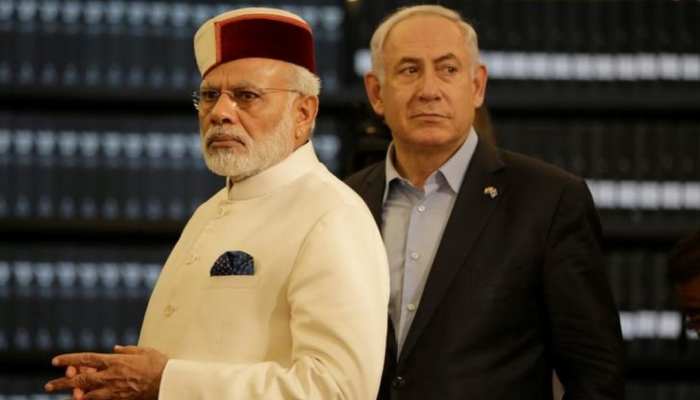
Despite no investigation or credible evidence, Indian authorities hastily alleged ‘cross-border involvement’—a claim Pakistan rejected while calling for an impartial international inquiry. India did not acknowledge the demand. Its playbook, like Israel’s, is to accuse first and investigate never.
Hitting civilians and calling them terrorists
The irony is stark. In its May 7 press conference, India claimed that the targets for its overhyped Operation Sindoor were carefully chosen based on “credible intelligence” and were specifically selected to avoid civilian casualties and damage to civilian infrastructure. Yet, this statement reads more like a page out of a well-rehearsed script of denial and narrative manipulation. The reality on the ground tells a different story.
Israel and India have both carried out operations that resulted in significant civilian casualties under the guise of counterterrorism. Israel’s relentless assault on Gaza has displaced over half of the population, with women and children making up the majority of those killed.
The fact that the international community has neglected Israel for dropping US-made bombs on refugee camps has set an example and given a green light to other nations to carry out the same brutality without fearing any consequences.
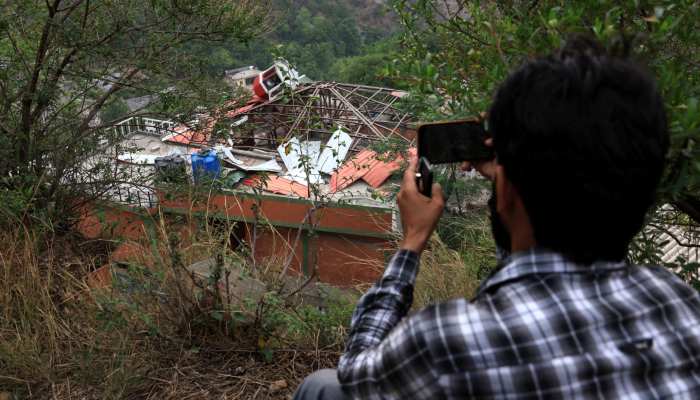
While studying Israel’s script carefully, India infiltrated Pakistan’s airspace on May 6, which led to the deaths of 31 civilians, including several children, while asserting they were targeting so-called ‘terrorist camps’, a baseless claim firmly rejected by Pakistan. In both cases, the civilian toll has been downplayed, as both governments —India and Israel — continue to justify their actions as legitimate security measures, despite mounting evidence to the contrary.
India deliberately targeted mosques, which reflects the shared “extremist ideology” of Narendra Modi’s Hindutva-led government and Zionists, as the world has seen Israel targeting hospitals, schools, refugee camps, and journalists’ camps.
Drone swarms
One of Israel’s attack strategies has been using drones excessively, not only to target civilians but also to instil fear. India, using the Israel-made Harop drones, also launched attacks on several Pakistani cities.
Israel has made widespread use of drones, particularly loitering munitions, in its military campaigns in Gaza, frequently targeting densely populated areas, including refugee camps, schools, and hospitals, resulting in substantial civilian casualties.
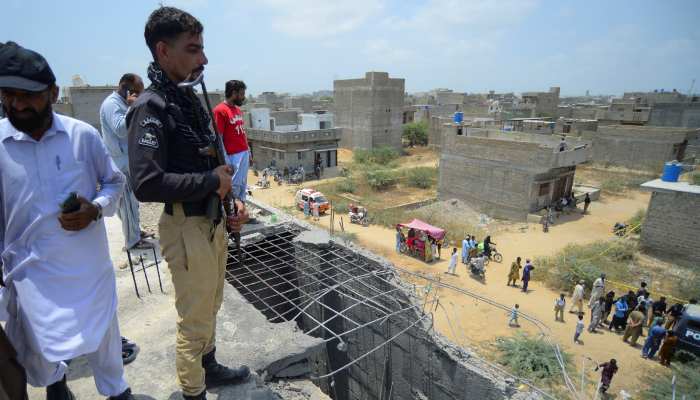
India carried out Harop drone strikes on May 8, but Pakistan shot down 77 of them. One strike near Lahore injured four soldiers, while another in Sindh led to the death of a civilian.
International outlaws
The silence of the world over Israel’s atrocities seems to have given Narendra Modi a free pass to act with impunity. Israel, for almost two years and even earlier, has gotten away with breaking every international law. So much so that it has been sanctioned by the International Court of Justice for war crimes.
Yet it continues to violate international law, and so did India by attacking Pakistan.
Article 2(A) of the United Nations’ charter prohibits members from attacking other countries, it states that “All members shall refrain in their international relations from the threat or use of force against the territorial integrity or political independence of any state, or in any other manner in consistent with the purposes of United Nations.”
Reema Omer, a lawyer, explained to Geo News that Article 51 of the UN Charter was often misinterpreted.
“It gives the right to ‘self-defence” but not to attack in retaliation or revenge, and these are often mixed, which India used to attack Pakistan in retaliation for the Pahalgam attack.
“UN Charter does not give India the right to attack the territorial integrity of any country, because self-defence does not mean retaliation or teaching another country a lesson,” Omer said.
Blocking water is another violation India is keen on committing. India’s Water Resources Minister, CR Patil, reinforced this aggressive stance by asserting, “We will ensure that not even a drop of water from the Indus River goes to Pakistan.”
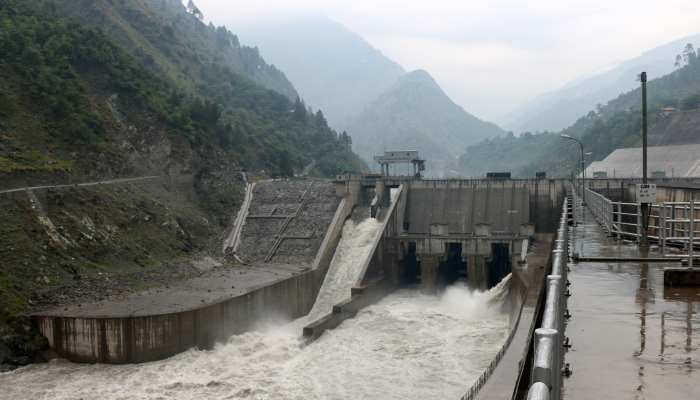
Omer emphasised that using water as a weapon to starve a population of food and water was a crime against humanity.
“It is a crime against basic human dignity, and international law recognises it as such; India has repeatedly made claims suggesting it intends to take such actions.”
She further added that unilateral suspension of a water treaty under international law was generally prohibited, except under very specific and exceptional circumstances.
“Treaties, especially those concerning transboundary watercourses, are considered binding legal instruments, and their enforcement is governed by the Vienna Convention on the Law of Treaties (1969).
“According to the Convention, a treaty can be suspended or terminated unilaterally only if there has been a material breach by the other party.
“Other valid grounds include a fundamental change in circumstances or impossibility of performance. However, none of these grounds apply in the case of the IWT.”
The bottom line is, any state attempting to suspend a water treaty unilaterally, particularly during conflict, risks breaching international law.
Such actions can also be construed as acts of environmental aggression or even war crimes under international humanitarian law if they deliberately deprive civilians of access to water.
During the May 7 escalation, India also deliberately targeted Pakistan’s hydropower infrastructure — a serious military provocation and a direct violation of international humanitarian law. Specifically, it is a breach of Article 56 of the 1977 Additional Protocol I to the Geneva Conventions, which explicitly prohibits attacks on works and installations containing dangerous forces, such as dams and power plants, if such attacks may lead to severe civilian casualties.
Additionally, international law strictly prohibits the deliberate killing of civilians, particularly in times of armed conflict. This principle is central to International Humanitarian Law (IHL), most notably enshrined in the Geneva Conventions of 1949 and their Additional Protocols. The Fourth Geneva Convention specifically protects civilians, stating clearly that parties to a conflict must always distinguish between combatants and non-combatants. Direct attacks on civilians, or attacks that are indiscriminate and likely to cause excessive civilian harm for the anticipated military gain, are strictly forbidden. Such acts are classified as war crimes. Similarly, attacking religious sites is also prohibited by international law. India attacked mosques in Pakistan and claimed to have targeted terrorist hideouts, but it has yet to provide any evidence to support this claim.
Manipulating media
India and Israel have both employed digital censorship as a tool to control public perception, blocking social media accounts, news channels, and pro-opposition content that challenge their wartime narratives. By silencing dissenting voices, both governments have actively shaped and manipulated domestic and international discourse to suit their agendas.
In Israel’s case, biblical references, dehumanising rhetoric, and unverified claims—such as the widely circulated and later unproven story of Hamas infanticides —were amplified to evoke international sympathy and deflect scrutiny. Israeli media have played a key role in framing devastating airstrikes on refugee camps, schools, and hospitals as legitimate responses to terror, blurring the lines between combatants and civilians.
Interestingly, a former engineer at Meta filed a lawsuit alleging the company exhibited bias in its handling of content related to the war in Gaza. According to the lawsuit, he was fired after trying to fix technical issues that were causing Palestinian posts on Instagram to be unfairly suppressed.
The Malaysian Communications and Digital Minister also acted upon complaints from social media users that their content, which included words such as ‘Hamas’ and other similar terms, was being automatically removed by the social media platform (TikTok).
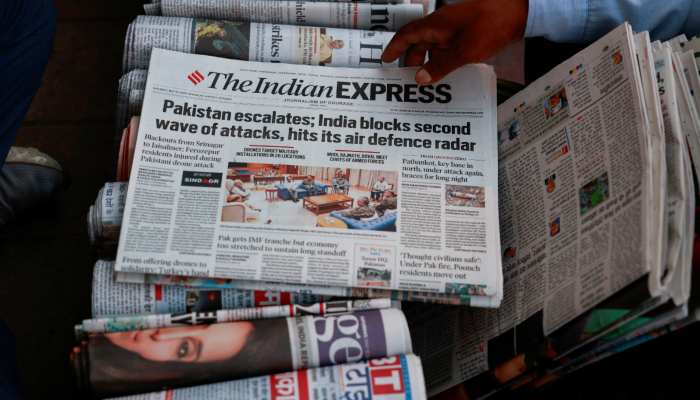
Additionally, The Intercept reported that members of the Israeli tech volunteer group Iron Truth leveraged their connections with individuals in major tech companies, such as Facebook, Instagram, TikTok, and X, to gag social media content they considered detrimental to Israeli interests.
On top of that, a news outlet, Drop Site, in its investigation found that the Israeli government directly engineered a broad-based censoring of posts on Instagram and Facebook that criticise Israel or show even mild support for Palestinians. The data reveals that since October 7, 2023, Meta has complied with 94% of Israel’s takedown requests. Globally, Israel is the leading source of takedown requests by a significant margin, and Meta has responded by expanding the scope of posts it automatically removes. This has resulted in what could be described as the largest mass censorship effort in modern history. And this is just the tip of the iceberg!
India used similar tactics, but with an added layer of aggressive sensationalism. Indian mainstream media have repeatedly spread misinformation, exaggerated threats, and echoed unverified claims during the recent escalation with Pakistan. Without waiting for evidence or an international inquiry, Indian news outlets quickly blamed Pakistan for the Pahalgam incident.
In response to escalating tensions with Pakistan, the Indian government has also cracked down on social media, targeting accounts it accuses of spreading ‘provocative’ or ‘anti-India’ content. It also asked X to block 8,000 accounts, including those of Pakistani politicians, celebrities, and media organisations.
Moreover, the Indian government banned Pakistani YouTube channels, including prominent news outlets, entertainment channels, and even vloggers, accusing them of spreading provocative and communally sensitive content, as well as false narratives against India.
India’s censorship has reached such extremes that it has now gone as far as blocking its own news outlet, including The Wire, across the country. The Wire condemned the move as “blatant censorship” and a violation of press freedom, stating that it would take all necessary steps to challenge the government’s decision.
‘Draconian’ democracies
Israel projects itself as the only democracy in the Middle East, while India boasts about being the largest democracy in the world, though both have little regard for international law and human rights.
Where Israel sees Muslims of Palestine as a threat to its “security” and continues to wipe them out brutally, Modi has also been alleged to prolong his rule by fuelling anti-Muslim sentiment and using the Pakistan threat. Both have been acting as neighbourhood bullies. Israel faces unarmed civilians and hence does as it pleases. India has Pakistan and China, two nuclear powers, standing in its way.
With these two hostile states repeatedly breaking international laws without consequence, the future of global peace looks increasingly bleak.

